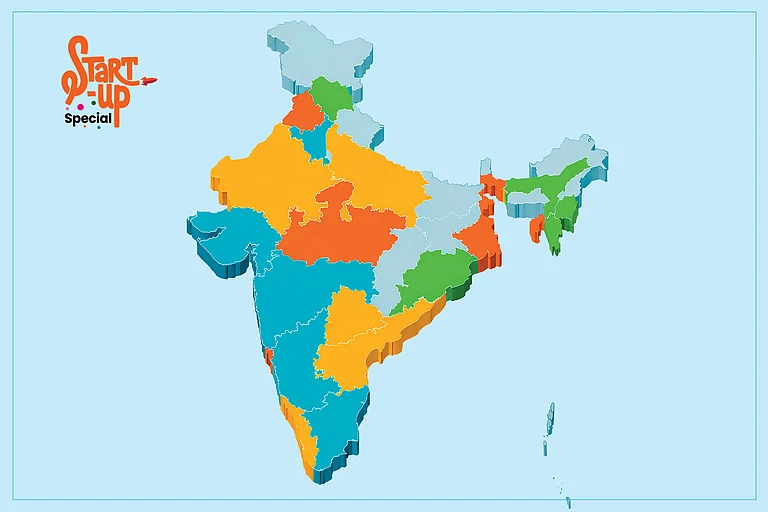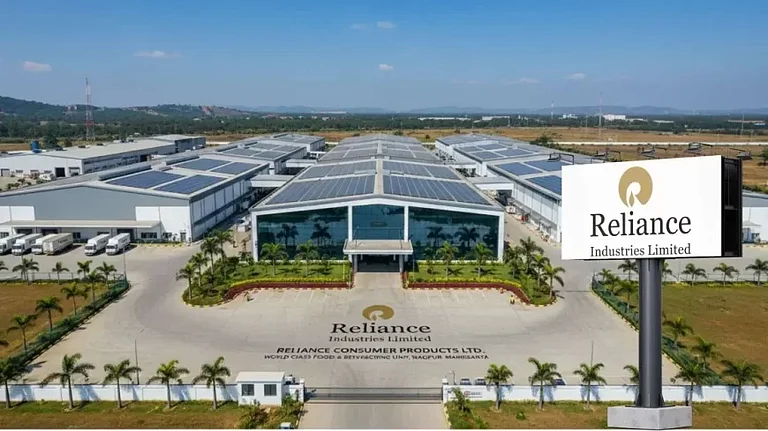
Over the past decade, fertility start-ups in India have raised more than $100 million
What separates this fertility start-ups from traditional IVF clinics is the way they rebuild the entire stack of reproductive care
Most of these companies remain at Seed or Series A stage, indicating a young but fast-maturing market
In Bengaluru’s Indiranagar, a 33-year-old marketing executive scrolls through an app that promises to make conception “data-driven.” The interface tracks her entire cycle, all without leaving home. The app belongs to Inito, one of India’s most well-funded fertility start-ups, which raised $15 million last year to scale its AI-powered hormone testing device.
What was once an unspoken, deeply personal journey is now a digitised, venture-backed market opportunity. Fertility has quietly emerged as one of the hottest frontiers in Indian healthtech, not just for women’s health, but as a business that sits at the intersection of science, aspiration, and scale.
Over the past decade, fertility start-ups in India have raised more than $100 million across nearly 145 rounds, according to data from Traxcn. Annual funding volumes that hovered below $10 million until 2019 suddenly surged post-pandemic, peaking at $24 million in 2023. The curve mirrors both the pandemic-era healthtech wave and the rising comfort with tech-enabled reproductive care.
“Fertility sits at the crossroads of emotion and economics,” says Meghana Rao, partner at Ventureast, a Bengaluru-based venture capital firm focused on consumer health. “It’s one of the few healthcare categories where the customer is willing to spend, the margins are strong, and the outcomes are deeply personal.”
From Niche Femtech to Full-Stack Fertility
For years, “femtech” in India was shorthand for pregnancy apps or period trackers. Today, the ecosystem has evolved into a full-stack fertility industry spanning IVF chains, egg-freezing start-ups, fertility diagnostics, and even biotech research into delaying menopause.
The leading players tell that story. Healofy, a social platform turned women’s health company, has raised $22.5 million to build one of India’s largest pregnancy and parenting communities, expanding later into fertility education. Gynoveda, which raised $10.9 million in 2023, fuses Ayurveda and modern medicine to treat menstrual and fertility disorders. Allo Health, Veera Health, and Janitri are newer entrants, focusing on sexual wellness, hormonal tracking, and AI-based fetal monitoring respectively.
Most of these companies remain at Seed or Series A stage, indicating a young but fast-maturing market. However, funding is shifting toward full-service models combining clinical and digital care as the category is becoming less about apps and more about integrated ecosystems.
What separates this new wave of fertility start-ups from traditional IVF clinics is the way they rebuild the entire stack of reproductive care. Instead of relying on the subjective skill of individual embryologists, they’re pushing AI deep into the lab. Bengaluru-based SpOvum, for instance, has developed a robotic ICSI system that measures oocyte stiffness to reduce human error, while larger chains like Nova and Birla Fertility have begun adopting AI-driven embryo and sperm selection tools first piloted by smaller fertility-tech players.
Because these start-ups centralise data across every clinical touchpoint, the patient experience becomes fundamentally different. “Patients used to walk into a clinic and surrender to the process,” says Dr. Rohan Devireddy, founder of Meridian ReproTech in Bengaluru. “Now they ask for embryo-grade histories, hormone-response curves, even lab-environment logs. Start-ups didn’t create that demand, they just finally built the systems to meet it.” The result is a shift from vague assurances to real-time visibility, tracking hormone trends, egg-quality scores, embryo viability and implantation likelihood through app-based dashboards, offering a level of transparency older clinics rarely offer.
They also rethink the business model. Legacy clinics depend almost entirely on one or two high-value IVF cycles, but start-ups monetise the entire reproductive journey with preconception tests, ongoing fertility coaching (like Arva Health’s digital-first model), at-home conception kits such as Subhag HealthTech’s VConceive, and employer-backed fertility benefits.
Some, like Pluro Fertility, operate as network platforms that bring partner clinics onto unified SOPs and shared embryology protocols, creating a level that standalone centres struggle to match.
The Geography
The map of India’s fertility boom mirrors the country’s larger healthtech geography. Bengaluru, Mumbai, and Delhi NCR dominate the start-up landscape, accounting for roughly 70% of all venture-backed fertility firms. Southern India, led by Bengaluru and Chennai, has become the operational heart of fertility restructuring, home to both deep-tech labs and large IVF networks.
Outside the metros, Hyderabad, Pune, and Ahmedabad are emerging as new IVF hubs, buoyed by local hospital chains integrating fertility units into multispecialty facilities. But the rural-urban divide remains stark.
“Despite the buzz, fertility tech is still an urban luxury,” says Dr. Rachita Menon, medical director at Nova IVF. “The infrastructure, the specialists, even the digital literacy are all concentrated in Tier-1 cities. Fertility care in India is expanding, but not yet democratised.”
India’s comparative advantage lies in cost and expertise. The average IVF cycle in India costs between ₹1.5-3 lakh, roughly one-third of global prices. That affordability, paired with strong clinical outcomes, is making India a regional fertility hub for medical tourism drawing patients from Southeast Asia, the Middle East, and Africa.
Still, affordability is relative.
Fertility remains financially out of reach for most Indian households, even as technology improves diagnostics and patient management. A single IVF cycle can cost as much as a year’s worth of income for a family and most couples require multiple rounds to succeed.
Hence, technology has made fertility care smarter, but not necessarily cheaper. Most new-age clinics, says Dr. Reeva Prabhu, founder of a Pune-based fertility centre, tend to focus on premium urban consumers who can afford repeat cycles, personalised treatment, and elective options like egg-freezing.
Startups are experimenting with new pricing models to expand access from teleconsultations and subscription-based hormone testing to financing partnerships with fintech lenders. Platforms like Inito are lowering diagnostic barriers, while others such as Janitri are targeting semi-urban hospitals with affordable maternal monitoring devices. But the mainstream fertility consumer in India still sits firmly in the upper-middle-class, metro bracket.
Emotion Meets EBITDA
If wellness tech runs on engagement, fertility tech runs on outcomes. IVF chains typically report EBITDA margins of 25-30%, among the highest in the healthcare sector. That combination of predictable demand, high repeat engagement, and emotional stickiness makes fertility an investor favourite.
“Every fertility cycle generates not just revenue but a long-term relationship,” says Karan Dugrani, principal at a healthcare-focused private equity firm. “Patients often return for second cycles, prenatal care, even postnatal counselling. It’s one of the few categories where you get both trust and throughput.”
This business logic explains the capital concentration in the sector. Traxcn data shows that companies like Healofy, Inito, and Gynoveda together account for nearly half the total funding in the category. The boom years of 2021-2023 were marked by headline rounds including Pluro Fertility’s ₹125 crore Series A backed by Bessemer, and Luma Fertility’s $4 million seed round before capital flows slowed in 2024 amid investor caution.
According to reports, if 2022 was all momentum and valuation, 2024 is about proof. Investors now want to see that these models can scale profitably beyond Tier-1 consumers.
Albeit, scaling access is still a work in progress.
For all its growth, fertility tech in India remains a premium product in a price-sensitive market. The core challenge is that while technology can make care more efficient, it hasn’t yet made it meaningfully cheaper or more inclusive.
The Assisted Reproductive Technology (Regulation) Act, 2021 has formalised many parts of the industry, but enforcement gaps persist. Many clinics still operate outside standardised frameworks, and affordability schemes are rare. Insurance coverage for IVF or fertility treatments remains minimal, reinforcing the class divide.
The irony is that reproduction, one of the most human needs, is often treated as a lifestyle choice in both policy and pricing.
However, some founders see a turning tide. As corporate wellness benefits evolve, fertility coverage is entering the conversation especially in multinational companies competing for talent. “We’re already seeing fertility preservation being offered as part of workplace health packages,” notes Allo Health founder Varun Bajaj. “Once that scales, it could unlock a broader consumer base.”
India’s Global Moment
Globally, fertility-tech funding crossed $800 million in 2023, led by players such as Kindbody in the US and Apricity in the UK. India’s advantage lies in cost efficiency, English-speaking specialists, and strong medical infrastructure, a mix that’s positioning it as both a clinical destination and a remodeling hub.
International investors are taking note. “India has the talent depth of the West and the scalability of Southeast Asia,” says Nina Patel, Asia lead at 22Health Ventures, a Singapore-based fund that invests in healthtech start-ups. “The question is no longer if the fertility market will grow, but who will consolidate it.”
That consolidation has already begun. Acquisitions like Momspresso and Proactive For Her, both focused on women’s wellness and subjected to acquisitions in 2021 and 2023 respectively, signal how larger healthtech or hospital groups are building fertility portfolios. Analysts expect a new wave of M&A over the next three years as early-stage start-ups seek capital or clinical infrastructure to expand.
India’s fertility-tech story is ultimately a paradox: a market built on access that remains largely inaccessible.
The next phase of growth will hinge not on who builds the slickest apps or secures the largest rounds, but on who can bring fertility care closer to India’s wider population. As Bajaj of Allo Health puts it: “Technology has made fertility more transparent. Now it has to make it more inclusive.”


































